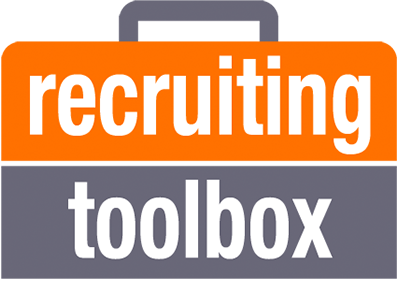Recruiting Toolbox Blog
Recruiters: Do you suck? (No!)

[This post first appeared on ERE.net in January 2012]
Two recruiters meet at a conference:
- Laura gets 30% of her hires from referrals, has used only one headhunter in the past six months, and has a 42-day average time to fill. She filled 11 jobs last month.
- Jerry gets 20% of his hires from referrals, uses headhunters regularly, and has a 65-day average time to fill. He filled eight jobs last month.
Is Laura better than Jerry? Does Jerry suck?
Wait.
What if I told you Jerry has 300 more Twitter followers than Laura? Ha. Now who sucks, Laura!? :)
I love — love — to hear provocateurs speak at conferences. I love to hear opinionated people make a case for doing stuff better, pushing us to hire better, faster. But I get tired of the measuring sticks we use to decide if we’re nailing it.
I spent most of my career in corporate recruiting, as a recruiting director with Amazon and Expedia. And now as a consultant, I get to work with some great companies. As we work to help them with sourcing strategies, recruiting process and systems improvement, or even recruiter and hiring manager training, we learn a lot about how they do what they do. And what we find is that there are a bunch of recruiters out there that don’t suck, but who think they do suck. That’s a problem. People who think they suck don’t usually do great things. And we need as much “great” as we can get.
Our team gets asked, “How does our [time to fill, source of hires, recruiter productivity, employer brand, candidate experience] compare to other clients you work with?” And we can share averages and help them to see what they do better and not-as-well as others. I completely get why we all want to know this stuff. But can we really compare one company to another? One team of recruiters to another? Along some dimensions and some standards, sure, probably.
But as many before me have pointed out, comparing cost per hire, time to fill, recruiter productivity … it’s not silly to benchmark, but I’m not sure the results are really that helpful. Why?
Geez, just start to make a list of all the things that may be different between two companies or two recruiting teams. Here are several:
The type of people hired
- Entry level customer service vs. software engineers vs. outside sales people
- Are you pushing hard to improve diversity and focusing more on under-represented groups, with profiles that are different from your typical profiles?
The number of recruiters and sourcers
- This usually drives req loads/recruiter, which can almost dictate what a recruiter can/can’t realistically do
Access to scheduling and sourcing support
- Some of you have teams supporting you, and some of you are one-person, ass-kickers with a phone, Outlook, Google, a free LinkedIn license, and Excel or Trello for your ATS
The role of the HR generalist
- Friend or foe? Manager (or maybe they think they’re your manager ?) or peer partner?
Your role
- Are you expected to play a Talent Advisor role, with a big focus on middle-of-funnel interviewing and debrief facilitation, which can take up 10+ hours/week, or are you focused more on just sourcing and closing?
The engagement level of the hiring managers
- Are they sourcing? Do they drive quick, quality hiring decisions? Do they help close?
Your brand
- Do you have a strong consumer brand? A strong employer brand? Or, do you have to spend 10 minutes of your sourcing calls just to explain what your company does?
Your location
- Do people want to work where you have jobs? (In the late 1990s, before everyone knew who Amazon was, 50% of our sales pitch to software engineers was focused on Seattle, since we ended up needing to relocate the majority of our hires — much harder for my recruiters to source people from sunny California than companies who hired locally.)
- Are you in Europe, with practices and laws that slow down your process, even though you’re ready to move fast?
Your compensation packages
- Do you pay 50% of market? Or, 70% percent of market? Do you offer equity? What about huge tech-company sized sign on bonuses?
Tools!
- Do you have — and use — Linkedin Recruiter, a CRM, Job posting and ad distributors … even an ATS?
Even the basics of how things are measured vary wildly. Take time to fill …
- Does your clock start when the position was budgeted, when the incumbent quit, when the req was approved, when the req was posted, or when you led the strategy kickoff meeting? I’ve seen it so many ways.
It’s almost never apples to apples. Req loads in retail and healthcare are typically much higher than in tech and corporate functions, so comparing results across industries is hard. And even within the same industry — take retail — you may have a model with a lot of centralized sourcing support, or one with field HR generalists who own recruitment, or one with only foundational field support (where hiring managers are largely on their own, with support from their district managers and a three-ring binder from HR).
And I find the same to be true when I’ve interviewed recruiters, trying to compare them to each other. I’ve probably interviewed 50 recruiters from Microsoft in my career as a corporate TA leader, for example, and it’s even hard to compare Microsoft recruiters to each other!
My point is that very few of us will get a lot of value from comparing our performance to other companies. We’d likely get more from comparing ourselves to our internal targets, to goals that make sense in our resource model, and to goals that come from our unique business and talent needs.
I’m not saying you shouldn’t benchmark externally. That can be key to making business cases, key to executive influence, and key to getting your raise. And don’t get me wrong — I want more from the folks who publish industry stats, not less. It’s very helpful. You just need to … Put. It. All. In. Context.
I want you to hear it from me first. You don’t suck.
- I’d love comments from those of you who have worked in multiple environments, to share with everyone what kind of differences really help — or hurt — you.
- I’d love to hear people share how they gather external benchmark data that really helps them.
- And I’d love to get a hallelujah from people who are kickin’ ass despite the fact that they have little budget, little support, unrealistic req loads, and systems that make their job harder, not easier.
